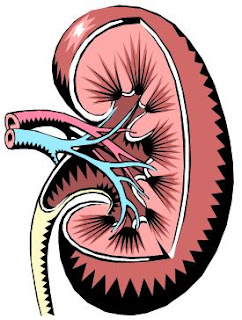Below are upcoming trainings of interest. For more complete information, see the our State, Regional or National AT Training web page. If you have trainings you'd like added to this page, contact Janet Jendron at jjendron@usit.net.
ABA-Based Early Intensive Intervention Embedded within Family Routines and Play
January 26-27, 2010
9:30 am-4:00 pm
Workshop Fee: $25
BACB CEU fee (optional): $20
Target Audience: Everyone is welcome. This workshop is designed for parents, teachers, board certified behavior analysts, board certified associate behavior analysts, and other professionals who design or implement behavioral programs for individuals who emit socially unacceptable behavior.
Register for this workshop
Instructor: Pat McCarthy, Ed.D., BCBA-D
This workshop is Behavior Analyst Certification Board (BACB) approved for 12 hours of Continuing Education Credit for qualified participants.
This workshop provides a structure for a family-focused approach to ABA-based intensive intervention for toddlers and preschoolers with autism. Designed to help participants become proficient in developing a quality individualized program plan for a young child with autism, the approach combines strategies/curricula supported by early childhood development research with effective, evidence-based non-aversive behavioral analytic methodology embedded within family routines and play. Participants are taken through the steps of creating a plan to be implemented in naturally occurring settings, routines, and events which will help a child develop effective communication, social, play, self-care, and emergent academic skills; thus preventing or replacing behaviors which can interfere with quality social interaction and learning from the environment.
------------
Universal Design, Accommodations and Differentiation: an SCCEC Preconference Event
February 25, 2010
9:00 am-4:00 pm
Lunch on your own
Workshop Fee: $50
Target Audience: Everyone is welcome. This workshop is designed for parents and professionals.
Universal design is having curriculum planning, strategy and materials in place in advance to meet the needs of all learners. Accommodations are technology, materials, sequences and procedures to help a learner be successful in the classroom. Differentiation is when all of these strategies are applied to the instruction for all learners in the classroom. In this session, planning processes and examples will be provided and applied to participants’ classroom, teaching and learning situations.
Register for this workshop
Instructor: Dr. Patrick Schwarz, Creative Culture Consulting LLC
This is an SCCEC Preconference Event. Please visit South Carolina Council for Exceptional Children (CEC) for conference registration.
Myrtle Beach Convention Center
2101 North Oak Street
Myrtle Beach, SC 29578
--------------
North Carolina Augmentative Communication Association (NCACA) 27th Annual Convention
"AAC: Across the Lifespan"
February 25 and 26th, 2010
Raleigh Marriott City Center, Raleigh, NC
February 25: Caroline Musselwhite, Keynote speaker - "Communication Circles - Super Support for People who use AAC"
February 26: Variety of presentations
See the website: www.ncaca.info
View Event
Contact Jessica Yeganian at jyeganian@yahoo.com.
Scholarships available for families and consumers
Download and applications from the above website.
Target Audience: This conference is designed for speech/language pathologists, occupational therapists, physical therapists, psychologists, educators, para-professionals, families, and consumers interested in increasing their knowledge of AAC and assistive technology.
 Ambidextrous children are more likely to have attention-deficit/hyperactivity disorder (ADHD), problems with language and schoolwork, and other mental health issues than right-handed children, new research suggests.
Ambidextrous children are more likely to have attention-deficit/hyperactivity disorder (ADHD), problems with language and schoolwork, and other mental health issues than right-handed children, new research suggests.






















